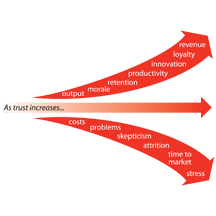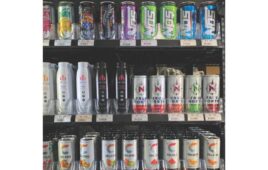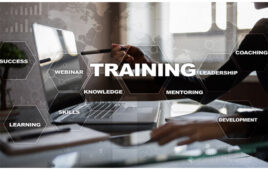 C-store retailers can use these pillars of trust to foster loyal teams and organizations.
C-store retailers can use these pillars of trust to foster loyal teams and organizations.
By Erin Rigik, Senior Editor
Whether you want more productive employees or better customer loyalty, cultivating trust is the greatest social currency in which to invest.
David Horsager, speaker, business strategist, and author of the national bestseller “The Trust Edge: How Top Leaders Gain Faster Results, Deeper Relationships, and a Stronger Bottom Line,” points out that a lack of trust is one of the biggest business tolls companies face, including convenience stores.
“Trust is not just a ‘soft skill,’” said Horsager at a recent public speaking engagement. “For the trusted brand people will pay more, come back and tell others. The trusted leader is followed. The trusted sales person is bought from. The trusted manager or teacher is respected. When managers build trust, employees are willing to be more innovative and engaged. When trust goes up skepticism goes down, so every thing takes less time. C-store executives need to understand that the real key to success is trust.”
So just how do c-store retailers cultivate such trust? Horsager outlines Eight Pillars of Trust, including clarity, compassion, character, competency, commitment, connection, contribution and consistency. Together, these characteristics can help boost the trust factor with customers and employees.
Clarity
People trust the clear and mistrust the ambiguous, Horsager said. “Being clear about the mission, vision and strategy creates buy-in. Being clear about the benefits to the customer creates sales. Clarity of expectations creates happy employees.”
Clarity also extends to getting clear about your own priorities for your business.
“If you have more than three priorities, you don’t have any, so be absolutely clear about the top three priorities for your organization every 90 days, and your team will be much more engaged,” Horsager said.
Compassion
Do not underestimate the power of genuinely caring. “People put faith in those who care beyond themselves,” Horsager said. “Trust and the ability to show empathy go hand in hand.”
Character
The two main components to character include integrity and morality. “With integrity, you are being consistent with your thoughts, words and actions. Add that to a strong moral compass, a sense of right and wrong, and you are giving people someone they can trust,” he said.
Competency
People have confidence in those who stay fresh, relevant and capable, and the same goes for products and companies. “Knowing how to do your job well matters,” Horsager said. “If you want people to trust you, make competency a priority.”
Commitment
People believe in those who stand through adversity. Let your actions speak louder than your words. If something matters to you, be prepared to show your employees through your actions. “Commitment breeds commitment,” noted Horsager. If you make and keep your commitments, your team will follow.
Connection
Today, people find it easier to trust friends than corporations or strangers. Look for ways to engage with people—be it your customers or employees—and build relationships. “We find it easier to trust when we have sense that we connect in some area,” Horsager said. Sometimes, it’s as easy as showing gratitude toward your employees, or asking questions to better understand and engage with your customers.
Consistency
“People love to see the little things done consistently. While all the pillars are important for building trust, failing to be consistent can undermine your efforts. Think of consistency like a savings account. Put a little in each day and over time, it will pay you back in safety and security,” Horsager said. He added that little things done consistently make the biggest difference.
C-store retailers can use the principles to foster trusted teams and organizations. “By using the eight pillars of trust, c-store executives can inspire, engage and unify their teams by building trust. Based on my graduate research, and over a decade of leadership consulting, it has become clear that trust is the world’s most precious resource,” Horsager said.
Learn more at www.DavidHorsager.com and www.TheTrustEdge.com.




